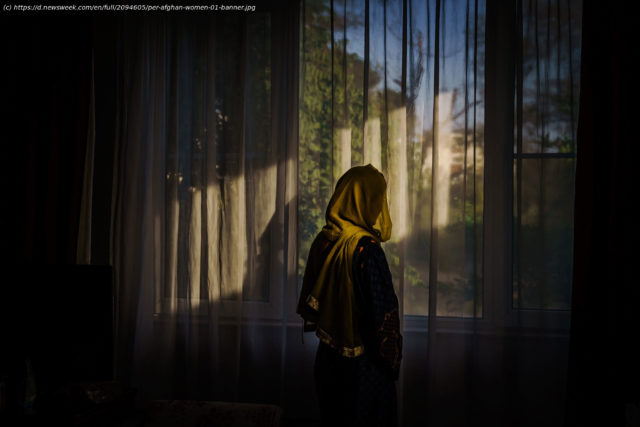A year after the Taliban took control of Afghanistan, Azra Jafari, the country’s first female mayor, fears for the women left behind.
Almost exactly a year ago, the last American troops left Afghanistan and the Taliban regained full control of the country. Since then, Afghanistan has descended into worsening poverty, repression, particularly of women and girls, and international isolation, underscored by the killing last week of Al Qaeda leader Ayman Al-Zawahiri by an American drone strike in Kabul.
Despite an initial public relations push to depict themselves as more moderate than during the 1990s, since retaking power the Taliban have banned women and girls from schools and most workplaces outside their homes. Their dress, speech and movements are tightly restricted. In the worsening economic situation, some poor families have resorted to selling their young daughters into arranged marriages. Arbitrary arrests, disappearances, torture and killings of men and women are widespread. Without an organized pressure campaign from the United States and its allies, Jafari says, nothing will change.
“In Afghanistan, I don’t see any group that could control the Taliban,” she says. “The Taliban will never change their ideologies and the international community needs to make a plan.” So far, she says, there has been nothing substantial from the West, besides statements condemning the crackdown.
In January, António Guterres, United Nations secretary-general, said: “For Afghans, daily life has become a frozen hell.”
Jafari’s family fled Afghanistan during the Soviet occupation, where, as a teenager, she established a school for Afghan refugee children. She returned home after the Taliban’s overthrow and was invited to help form the new government, helping to choose the first president. Five years later, President Hamid Karzai appointed her mayor of the Nili Municipality in central Afghanistan. The move was remarkable not only because she was the first woman to hold such an office, she was also Hazara, a minority ethnic group often persecuted and shut out of political power by Afghanistan’s majority Pashtuns. In April, according to the United Nations, the Taliban tortured and killed a midwife, amputating her legs, stabbing her and shooting her 12 times because she was a woman and a Hazara.
After the fall of the Taliban in 2001, the number of female students and women-owned businesses increased. Twenty-seven percent of the seats in the lower house of Afghanistan’s parliament were reserved for women. The government also constructed over 3,000 health facilities, providing medical care to women who had few services available to them under the Taliban.
Home
United States
USA — mix A Year After Taliban Takeover Afghan Women are Prisoners in Their Homeland






